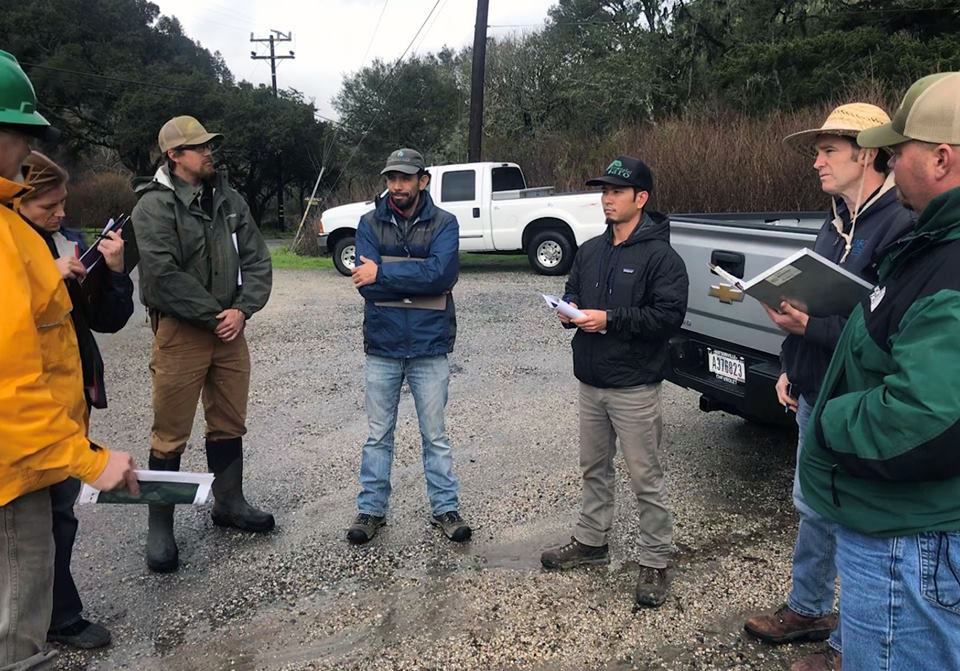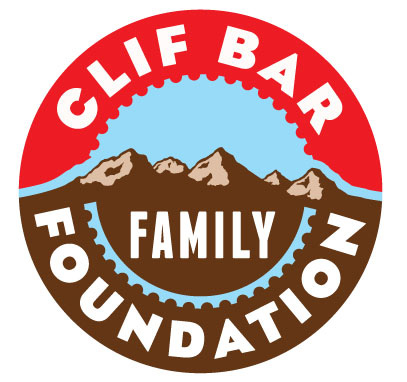Carbon Farm Planning
 Envisioning the carbon sequestration potential of organic farming practices at Swanton Pacific Ranch
Envisioning the carbon sequestration potential of organic farming practices at Swanton Pacific Ranch
 The Center for Sustainability, together with the Carbon Cycle Institute, the Resource Conservation District of Santa Cruz County, and Swanton Pacific Ranch (SPR), has developed a Carbon Farm Plan for the organically managed acreage at SPR. Increasing carbon capture on-farm has a host of agronomic and environmental benefits, including increasing soil water holding capacity and soil fertility, and the mitigation of rising levels of carbon dioxide (CO2) and other greenhouse gases (GHG) in the atmosphere, currently contributing to climate destabilization through global warming. Carbon Farm Planning aims to find opportunities for the implementation of on-farm practices that:
The Center for Sustainability, together with the Carbon Cycle Institute, the Resource Conservation District of Santa Cruz County, and Swanton Pacific Ranch (SPR), has developed a Carbon Farm Plan for the organically managed acreage at SPR. Increasing carbon capture on-farm has a host of agronomic and environmental benefits, including increasing soil water holding capacity and soil fertility, and the mitigation of rising levels of carbon dioxide (CO2) and other greenhouse gases (GHG) in the atmosphere, currently contributing to climate destabilization through global warming. Carbon Farm Planning aims to find opportunities for the implementation of on-farm practices that:
1) decrease the production of greenhouse gases on-farm, and/or,
2) increase the rate at which the farm supports photosynthetically- driven transfer of CO2 from the atmosphere to plant productivity and/or soil organic matter. Enhancing agroecosystem carbon, whether in plants or soils, results in beneficial changes in a wide array of system attributes, including; soil water holding capacity and hydrological function, biodiversity, soil fertility, and resilience to drought and flood, along with increasing agricultural productivity.
driven transfer of CO2 from the atmosphere to plant productivity and/or soil organic matter. Enhancing agroecosystem carbon, whether in plants or soils, results in beneficial changes in a wide array of system attributes, including; soil water holding capacity and hydrological function, biodiversity, soil fertility, and resilience to drought and flood, along with increasing agricultural productivity.
Special thanks to Greg Rawlings (Jacobs Del Cabo Production Field Manager), Grant Williams (SPR Farm Manager), and Steve Auten (SPR Resource Manager) for providing the management history and data on which the carbon farm plan was based.
About Carbon Farm Planning
 Carbon farming combines cutting-edge agricultural practices with the tools of ecological design to build healthy soil and profitable farms and ranches, as well as improving the rate at which carbon dioxide is removed from the atmosphere and converted to plant material and/or soil organic matter. A Carbon Farm Plan evaluates and quantifies how on-farm practices can sequester carbon while providing other environmental co-benefits such as increased on-farm climate resilience, soil health, and farm productivity. Carbon Farm Plans can be developed for natural and working lands including: rangelands, forests, croplands and orchards.
Carbon farming combines cutting-edge agricultural practices with the tools of ecological design to build healthy soil and profitable farms and ranches, as well as improving the rate at which carbon dioxide is removed from the atmosphere and converted to plant material and/or soil organic matter. A Carbon Farm Plan evaluates and quantifies how on-farm practices can sequester carbon while providing other environmental co-benefits such as increased on-farm climate resilience, soil health, and farm productivity. Carbon Farm Plans can be developed for natural and working lands including: rangelands, forests, croplands and orchards.
Steps to creating a Carbon Farm Plan include the use of NRCS COMET-Planner and COMET-Farm tools for preliminary calculations of carbon sequestration potential of land management practices.
The download a copy of the 2019 SPR Carbon Farm Plan, please CLICK HERE
For more information, please contact us at cfs@calpoly.edu or call 805-756-5086.







